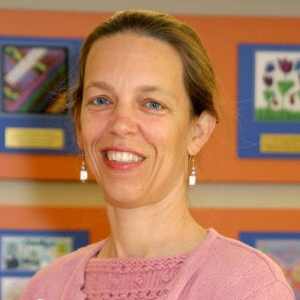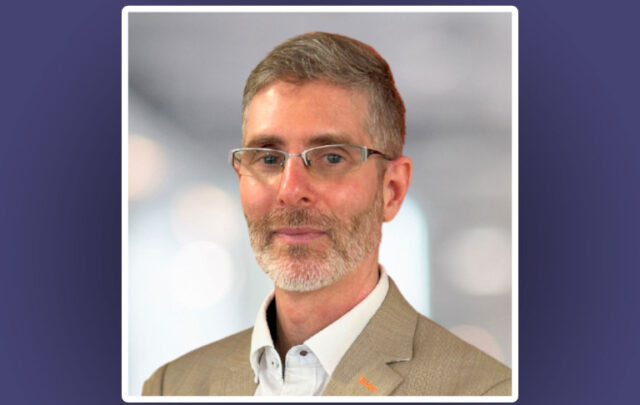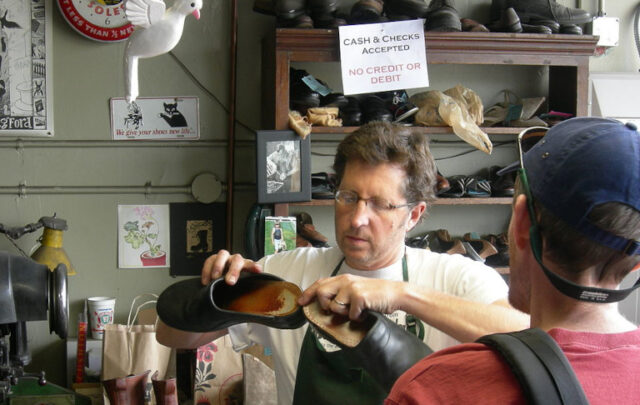Those who cannot remember the past are condemned to repeat it. –George Santayana
The virtual credit world we currently live in isn’t an original creation. Mankind has done this before, says anthropologist David Graeber, author of Debt, the First 5,000 Years. Credit “is the original form of money. In ancient Mesopotamia they were doing most things by credit. Coinage was only invented 2,000 years after the first accounts we have.”(1)
 Throughout recorded history, Graeber tells us, we have alternated between a credit-based economy and a world where coins or some kind of metal or material object was used in everyday transactions. But today, as we wrestle with the consequences of one burst credit bubble and await the bursting of another(2), there are some significant lessons to be learned from how credit was done in the past.
Throughout recorded history, Graeber tells us, we have alternated between a credit-based economy and a world where coins or some kind of metal or material object was used in everyday transactions. But today, as we wrestle with the consequences of one burst credit bubble and await the bursting of another(2), there are some significant lessons to be learned from how credit was done in the past.
As we navigate The Great Turning, we must create a safety net or “backup plan” as the conventional growth-dependent economic system falters and crumbles. Ideally, that safety net will integrate threads which become the foundation for the new economy — a post-carbon, post-petroleum, post-peak-everything, more socially just, necessarily degrowth economy.
Lesson from the Past #1: Checks and Balances
Graeber points out that in history’s prior credit cycles, there was “some mechanism to make sure the whole system doesn’t go crazy. For example the jubilees. … There was a complete ban on interest-taking, along with other things like debt peonage. It was considered critical to assure that society didn’t polarize and split apart.”(1)
The jubilee concept, which some might remember from Bible study, was a periodic debt forgiveness. The slate was wiped clean. Graeber says this was common in some cultures when the monarch changed. New king, new economy: all debts were forgiven. Sounds like it was the grand “Restart” button.
Usury was the term for charging interest on money loaned. Early Christian and Islamic cultures categorically banned it. In some cultures the word for “debt” was the same word as for “sin.” Graeber tells us interest-taking crept back in at the tail end of the Renaissance, which means it was in place just in time for the Industrial Revolution.
Debt peonage was a practice whereby people who couldn’t pay their debts were enslaved, or had to sell family members into slavery, to meet those debts. Again, in history’s prior credit cycles, there were societal bans on this practice. Graeber’s commentary runs that if Aristotle were to return today and see people trapped by today’s societal pressures to work at jobs they didn’t want to work, he would declare we are slaves in all but name. Student loans which cannot be relieved through bankruptcy proceedings only drive home the point.
In the current credit cycle, none of these mechanisms are in place. And as a result, the whole system IS going crazy. Society IS polarizing and splitting apart, the 99% versus the 1%.
As we design the “backup plan” — the rudiments of the new economy — we must be conscious of the need to implement balancing mechanisms, including jubilee, ban on usury and debt peonage. “Listen to the elders,” early Transition movement materials coached us. In this case, the elders are the ancients, and they had wisdom that we in all our modern cleverness have completely cast aside.
Lesson from the Past #2: Zero Interest
Charles Eisenstein, author of Sacred Economics and strong advocate for the idea of a gift economy, builds a strong case for a zero-interest economy. In his chapter “Robbing Peter to Pay Paul,” Eisenstein gives a detailed example of how paying interest strips resources from the very enterprise you’re seeking to nurture.
Right now it’s fashionable to consider micro-loans to downtrodden people in third world countries as a socially-just approach. Eisenstein’s arguments undo all of that, and point out how the micro-loan paradigm actually sucks the lifeblood out of that developing local community. Inserting interest expenses into the community sets in motion a long chain of monetizing transactions which previously did not need to be monetized, thus creating greater financial need within surrounding local community members. “The goal of paying interest or dividends to investors, to give them a positive rate of return, conflicts with the goal that makes the company socially or environmentally ‘conscious.’”(3)
Merge Eisenstein’s zero-interest, zero-rate-of-return logic with Graeber’s historical research. The wisdom of past societies recognized that interest-taking was a bad thing, and they took strong measures to prevent it.
Graeber says that as the practice of interest-taking crept back in, the convincing argument claimed that one’s money might otherwise be invested in a business where it would be growing; thus if that money were instead put to alternative use in lending, it should similarly be growing.
But consider Herman Daly’s steady state economy, and the understanding that on a finite small planet, the concept of unceasing, unlimited “growth” is preposterous. If we’re operating within a steady-state economy (actually, post-peak-everything we’re operating in a degrowth economy), it reverses the logic that Graeber quotes. If the economy isn’t growing, and the business world isn’t growing, whyever should “money” be growing?
Admittedly, the idea of a zero-interest, zero-rate-of-return economy is very far from our current paradigm. When I ran this discussion past a fellow member of Transition Los Angeles, his snide comment was “Tell that to the 1%!”
Yet at a local, community-centric level, the objections of the 1% are irrelevant. We, the 99%, have to have places to put our money, and the main reason we must subscribe to the investments and banking systems of the 1% is that we haven’t yet set up our own.(4)
Lesson from the Past #3: (R)evolution
There’s one revolutionary program in all of antiquity: cancel the debts and redistribute the land (in that order).
–David Graeber quoting Moses Finley(1)
Perhaps the Occupy movement has already begun it. Fast on the heels of the Arab Spring, perhaps we are headed for a fulfillment of Finley’s truism.
In a publication called “The Great Transition” about the transformation of economics, one of the points posed by the UK’s New Economics Foundation was that we need a Great Redistribution. Land access has been a hot topic with other bloggers at Energy Bulletin lately. Certainly within the circles of agricultural reform and urban farming I work with, land is a significant issue.
Peak oil forecasters of the doom-and-gloom variety say that going into post-petroleum with an unprepared populace is a ticket to civil unrest and war. I joined the Transition movement in hopes to avert that prediction, in hopes to help build a positive outcome. Yet Finley’s/Graeber’s comments are very worrysome. Can a change this big be achieved through peaceful means?
At a minimum, Graeber’s commentary provides nails for the coffin. Business-as-usual and grow-grow-grow economic concepts are terminally broken. Things cannot remain the same. At this point in time our choice is Evolution or Revolution.
Thus the third Lesson from the Past goes like this: if Lesson #1 and Lesson #2 seem “too big” or “too radical” of change to make … we simply do not have a choice. It’s Evolution or Revolution. One of them is going to happen.
Personally, I choose Evolution, and am working hard to try to make that happen.
- How do we create a resilient local economy, an economy by and for the 99%? http://economicresilience.blogspot.com/
- Transition Los Angeles’ “Transition Enterprise” working group https://sites.google.com/site/latransitionenterprise/
Joanne Poyourow is active in Transition Los Angeles. She is completing her third book, under the working title “Economic Resilience: What we can do in our local communities.” She is an economist and a Certified Public Accountant by training.
(1) David Graeber talk, CSpan video, Melville House Bookstore in Brooklyn, New York, Aug 23, 2011, book tour for Debt the first 5000 years. http://www.c-spanvideo.org/program/301265-1
(2) “Student loans in America: the next big credit bubble” http://www.economist.com/node/21534792
(3)see chapter 20, subheading “Robbing Peter to Pay Paul,” Charles Eisenstein, Sacred Economics, http://sacred-economics.com/read-online/
(4) see Community-based investment http://economicresilience.blogspot.com/2011/10/community-based-investment.html






